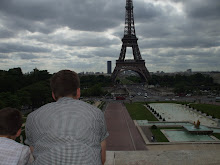The recent events surrounding the LUU Activities Executive’s dealings with the Palestine Solidarity Group, and some of the proposed referendum motions, convey mixed messages. Not only those that contradict one another; for instance, advocating the closure or expansion of the Peanut Gallery, only one of which may be put to referendum; but also those that seem to fly in the face of a democratic and principled union.
From the list of referendum motions, the Peanut Gallery issue has become one of the most controversial, challenged only by the proposed elevation of Jack Straw to Honorary President (I presume this will be somewhat like the position of North Korean ‘Eternal President’ Kim-Il Sung, who continues to preside eternally since his death in 1994).
The main case brought against the Peanut is that it has become the intimidating domain of a ‘highly political clique’. Not only does the use of the word ‘clique’ belittle the sentiments of serious political groups that use the space, but it is an all too easy label to apply to a group that holds ‘asymmetrical’ views. Those who feel intimidated by it are likely to be those that wouldn’t use it anyway, but that’s no case for willing its closure. The invocation of ‘intimidation’ is utterly arbitrary. Students will inevitably feel intimidated by the confidence of others, whether manifest in political activism or nights out in Fruity. The condemnation of the political nature of the Peanut – for one cannot and should not deny that it is the refuge of such groups – seems not only illogical but irrelevant. The Union is not an isolated entity, and the suppression of politics within fosters the kind of apathy that saw a minimal turnout of students in the Union Executive Elections. Though as stated at the outset, this is not the only gripe that I currently hold.
As you may be aware, the Activities Executive moved to ban the Palestine Solidarity Group from using LUU facilities following protests that took place when the deputy consul of the state of Israel, Ismael Khaldi, was invited by the LUU Jewish Society to give a talk at the university. The ban coincided with Israeli Apartheid Week, for which PSG had organised a series of events in conjunction with other societies, like People & Planet, Liberty at Leeds and Revolution, who decided to go ahead in hosting the events despite the ban. Yet in an ‘emergency meeting’ of the Activities Executive on March 2, to which none of the societies in question were invited to defend themselves, members came to the decision to cancel all the week’s events. Justification seems to revolve around the Executive’s unwavering desire to reprimand PSG, with the claim that allowing the events to go ahead would amount to undermining the original suspension of the group.
The meeting’s minutes argue not only that ‘separate’ Facebook pages were not made for the Liberty or People & Planet events, apparently enough to render them null and void, but that it was ‘dishonest’ of PSG to force other groups to ‘act on their behalf’. The Union embargo against PSG was made on the grounds of their behaviour at Khaldi’s talk; grounds not wholly without precedent. yet the motivation behind the events’ cancellation seem inane at best, and at worst, spiteful. The political messages to which the week sought to draw attention are in danger of being repressed: their occurrence under the mantle of a Liberty or P&P event would not have demeaned their importance, an importance now lost in the pursuit of needless one-upmanship. Their outright expulsion from the Union professes not only a vendetta against PSG but a further de-politicisation of the Union space.
The presence of political sentiments within the Union should be encouraged, and under no circumstances quashed. As a physical space, the Peanut Gallery is far from perfect, but as a refuge for those who do wish to be explicitly political, it is something to be cherished. Improve, expand, but do not eradicate. The Union has a bank, a beauty salon, a hairdresser, three clothes shops, two bars, three music venues, and only one democratic cooperative space. The move to cancel the Israeli Apartheid Week events, events spearheaded by both PSG and fellow societies, has sent out the message to such societies that their use of Union space is conditional only upon the consent of a capricious Executive. Let us not allow the freedoms of a ‘highly political clique’ to be threatened by the whims of an anti-political clique.
Subscribe to:
Post Comments (Atom)

No comments:
Post a Comment